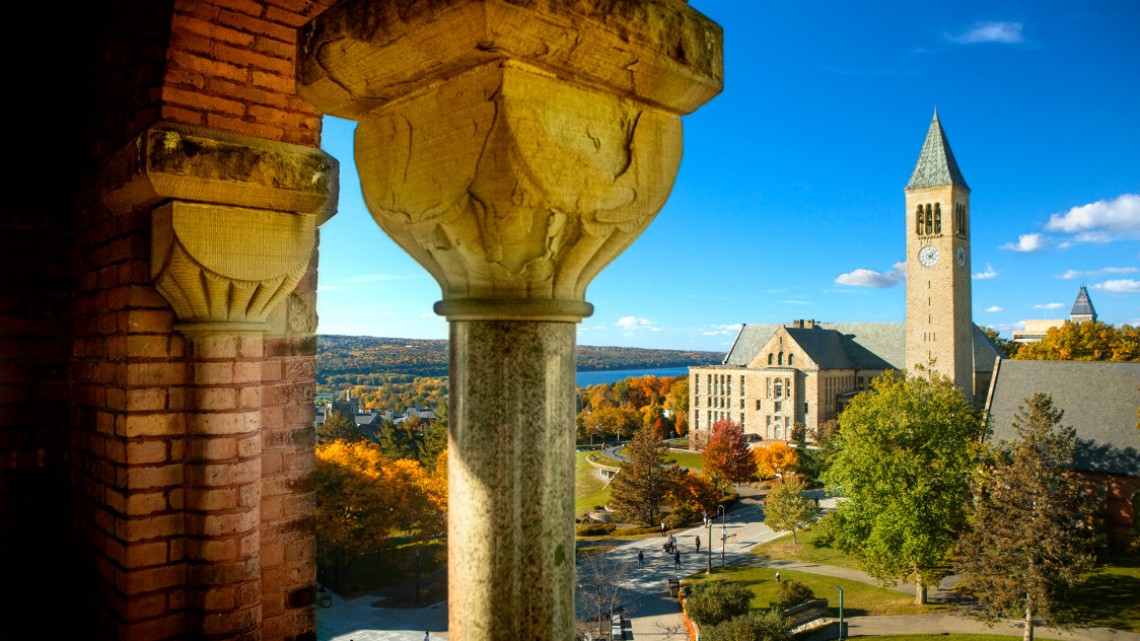
A newly released report will serve as the basis for campuswide discussion to advance the social sciences at Cornell.
Faculty report offers ideas for structure of social sciences at Cornell
By Susan Kelley
A faculty committee charged with exploring opportunities to position the social sciences at Cornell for excellence in 10 to 15 years has issued a report that will serve as the basis for campuswide discussion over the coming months.
The report from the Committee on Organizational Structures in the Social Sciences is part of an effort launched by Provost Michael Kotlikoff in January 2016 to significantly advance the social sciences at Cornell.
“The administration is committed to responding to the ideas presented by this excellent faculty committee, as part of an investment in the social sciences at Cornell. We want to do this in a thoughtful, collaborative way, taking advantage of faculty ideas about how we can create the greatest opportunities for future impact,” Kotlikoff said.
The committee was charged with “identifying organizational structures that would best position Cornell for excellence in 10-15 years by addressing the fundamental concern that Cornell’s social sciences are less than the sum of the parts and identifying ways to better connect faculty, to better provide faculty with the support that they need, and to improve our external visibility and recruiting power,” the report said. The committee was encouraged to “think big” and not worry about implementation.
“The committee was asked to think at a high level and to address three general organizational features: centers and institutes, academic units, and graduate fields,” said committee co-chair Vice Provost Judith Appleton. “We worked hard at staying focused on change that would impact the future of social sciences at Cornell.”
The report offers a range of ideas. Each idea is briefly described, followed by consideration of advantages and limitations in the context of what the committee identified as indicators of success and excellence.
Kotlikoff acknowledged that some of the ideas will be controversial. The committee’s ideas are neither recommendations nor specific plans of action, noted committee co-chair Ted O’Donoghue, senior associate dean for social science in the College of Arts and Sciences. “We’re in listening mode now,” he said. “And we want to make sure people engage with the full range of ideas.”
Among those ideas are to create a Cornell Center for Social Sciences; to combine the College of Human Ecology and the School of Industrial and Labor Relations; to create a structure to organize and promote health-related scholarship; to create a college of social sciences; to create three divisions within the College of Arts and Sciences (social sciences, arts and humanities, and sciences and mathematics); and to restructure the social science graduate fields.
The administration invites feedback from the Cornell community on the report. Throughout the remainder of the semester, the committee co-chairs and the provost will host forums in the colleges. Also, faculty, students, staff and alumni can email ssreview@cornell.edu with questions and comments. In addition, faculty will be able to participate in a secure online discussion platform on the provost’s website after March 30. Only after all feedback and input have been received and considered will the president and provost determine actions to be taken.
Since 1965, Cornell has repeatedly undertaken faculty-led reviews of the social sciences. Many have resulted in university actions, such as the creation of the Cornell Institute for Social and Economic Research and the expansion of the Department of Economics to span multiple colleges.
However, other concerns have remained unaddressed. Virtually all the reports highlight the challenge of Cornell’s dispersion of resources over an uncharacteristically broad group of departments, colleges and centers, as well as modest funding and a lack of national recognition. They also note the advantages of the breadth of Cornell’s research and education, and the faculty’s focus on many of society’s major problems.
In 2016, the provost instituted internal and external reviews of the social sciences at Cornell and requested faculty feedback on those reviews. He then called for three responses: a committee that is now looking at strategic research opportunities; a yet-to-be-formed “mechanics” committee that will look at social sciences operations; and the organizational structures committee, which began work in September 2017 and met weekly through February.
“There are significant opportunities here,” Kotlikoff said. “Our goal is to create structures that will enable faculty to collaborate more easily, build strong bridges between social sciences and other disciplines, secure larger federal grants and increase our national impact and reputation.”
Media Contact
Get Cornell news delivered right to your inbox.
Subscribe
